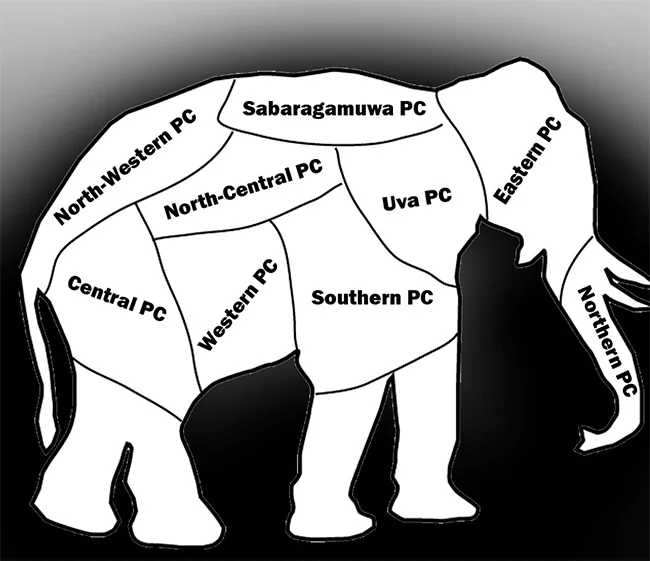Opinion
Solving ethnic issues without PCs

Tamils and also Muslims to a degree in the North, East, Centre and Colombo voted for this government rejecting their own ethnic political parties helping the government secure a two-thirds majority. The significance of this change of heart, as it were, should be understood by the government as well as all political leaders of the country. Maybe they want, apart from solving the problems common to all communities, a different approach to the ethnic problem which had been all these years exploited by their politicians for their own political survival. They may have realised the inadequacy of benefits of Provincial Councils (PCs) where the huge expenditure they entail is concerned.
The PCs do not serve any useful purpose. One cannot see a single project or beneficial outcome accruing from the PC system anywhere in the country. Instead, they have led to another bureaucratic barrier to the people and an increase in the number of politicians. The devolution of power via these PCs is totally redundant as shown by the inability of the Northern PC, which was formed for the very purpose of solving the Tamil problem, to make use of the opportunity to serve the people. The work done by the PCs could easily be carried out by the Government Agents and the Kachcheri system we had previously, without the involvement of politicians.
The total revenue of the PCs in 2020 was Rs. 331 billion and their expenditure was more or less equal. Thus, financially there was no gain for the country. The state coffers would have received that revenue even if there had been no PCs with much less expenditure. The PCs have functioned under Governors without elected representatives for several years.
Further, several authoritative worldwide surveys have shown that power-sharing as a solution to ethnic conflicts has not been effective. About 78 countries in Asia, Africa, West Asia, Eastern Europe, the former USSR and the Caribbean experienced intense ethnic conflicts during 1980 to 2010. Of these, only 20 managed to conclude inter-ethnic power sharing arrangements. Some of them such as Rwanda witnessed genocide Sudan in 2005, and Sudan was divided into two states. Only four to six countries achieved stable arrangements but they are also facing political instability (Horowitz D, 2014).
The following are some excerpts of the research findings; The core reason why power-sharing cannot resolve ethnic conflict is that it is voluntaristic; it requires conscious decisions by elites to cooperate to avoid ethnic strife. Under conditions of hyper-nationalist mobilisation and real security threats, group leaders are unlikely to be receptive to compromise and even if they cannot act without being discredited and replaced by harder-line rivals” (Kaufmann, 1997). Proposals for devolution abound, but more often than not devolution agreements are difficult to reach and once reached soon abort” (Horowitz, 1985).
That Sri Lanka provides ample evidence in support of the above research findings. Of the nine PCs the worst failure was seen in the one in the North, where it was supposed to facilitate the efforts being made to find a solution to the ethnic conflict. Its Chief Minister, after willingly contesting for the post, made use of the opportunity to engage in secessionist propaganda. He did not make use of the government grants for the development of the North.
In consideration of the above, what would be more suitable for Sri Lanka is a power-sharing mechanism. The Tamils who voted for the NPP government may prefer such a system.
The government has a two thirds majority and could bring in the necessary constitutional changes to do away with the presidential system, get rid of the 13th Amendment and establish an institution for power sharing at the centre.
N. A. de S. Amaratunga
